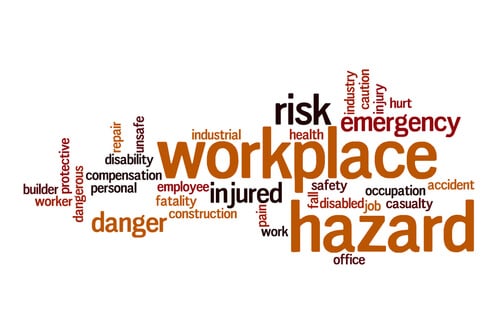
NC Workers' Compensation cases can be complicated. Understanding who has a claim and what an injured worker is entitled to can be difficult. This article attempts to address misconceptions about NC Workers' Compensation. The Bishop Law Firm represents injured workers in Raleigh, NC and surrounding areas. Call us today for a free case review, (919) 615-3095.
NC Workers' Compensation Overview
NC employees who are injured at work can have a workers' compensation case. Medical compensation and wage loss benefits for non-fatal injuries and death benefits for fatal injuries are available. NC Workers' Compensation cases are governed by the North Carolina Industrial Commission (NCIC). Injury by accident and occupational diseases are both covered.
Ten Misconceptions about NC Workers' Compensation
- If you are injured at work, you need to inform your employer immediately and within 30 days in writing. You should follow your employer's instructions in seeking medical treatment immediately after your work injury. If your employer refuses to acknowledge your injury or direct medical care, you should still seek immediate medical attention. In addition, many employers promise to pay for injuries if the employee forgoes filing a NC Worker's Compensation claim. Be aware that many of these promises go unfulfilled and they do not prevent an injured worker from filing a NC Workers' Compensation claim.
- Independent contractors are not considered "employees" for the purposes of the NC Workers' Compensation Act, but just because your employer calls you an independent contractor does not mean that you are one. Many employers try to classify employees as independent contractors to avoid paying for workers' compensation when in fact they are employees. Undocumented workers are also eligible for NC Workers' Compensation benefits but having a work injury claim will not stop you from deportation if you are in the United States illegally.
- Being hurt at work does not automatically entitle you to a NC Workers' Compensation claim. NC employers who have less than 3 employees do not have to carry workers' compensation insurance. You can try to recover from your employer personally, but this may or may not work out.
- NC Workers' Compensation is no fault which means that it does not matter who caused the work accident. A co-worker may have injured you or you may have accidently injured yourself and you would still have a claim. It should be noted that being inebriated when the injury occurred will stop you from having a NC Workers' Compensation claim.
- One exception to the no fault rule above is if your injury was caused due to your employer's violation of a safety regulation (OSHA) or if your injury was caused by your willful failure to use safety equipment. This may increase or decrease your workers' compensation settlement amount by 10% (See N.C. Gen. Stat. Ann. § 97-12).
- Pain & Suffering damages are not available in NC Workers' Compensation cases.
- NC is an at-will state which means an employer can terminate your employment for any reason or no reason at all. While retaliation against a NC employee who has filed a NC Workers' Compensation case and workplace discrimination under federal law is not allowed, this can be extremely difficult to prove in the context of "at will employment."
- The employer (their workers' compensation insurance company) controls medical treatment in accepted claims. In accepted claims, the employer has filed a form with the NCIC acknowledging that you have sustained a work injury that they will pay for. Even if your employer has accepted your claim with the NCIC that does not mean that they have agreed to pay for all medical treatment that you feel you need. You will be sent to their doctors and their doctors will determine what medical treatment you need and also what disability rating you have from your injury.
- In an accepted Workers' Compensation claim, you cannot choose your own doctors. You must ask your employer's worker's compensation insurance company for approval to go to the doctor of your choice. If that is not fruitful, you will have to ask the NCIC to allow it. But, you will only be allowed to go to your own doctor by the NCIC if you can show "by a preponderance of the evidence that the change is reasonably necessary to effect a cure, provide relief, or lessen the period of disability."
- If the employer has denied your workers' compensation claim, you will have to pay for your own medical treatment and you can go anywhere for treatment but if you are not eventually successful with your claim in front of the NCIC, you will not receive any compensation for your work injury.
NC Workers' Compensation benefits are available for injured workers but, unfortunately, there are hoops to jump through. Having an NC Workers' Compensation Attorney by your side can help you determine if you have a claim and how you should proceed if your employer's workers' comp insurance accepts/denies your claim.
The Bishop Law Firm represents injured workers in Raleigh, Cary, Fayetteville, Durham, Rocky Mount, Wilson, Smithfield, Louisburg, Chapel Hill, Roanoke Rapids, Greensboro, Winston Salem, Greenville and surrounding areas in North Carolina. We do not get paid unless we win your case and we offer free case reviews by phone, (919) 615-3095.

